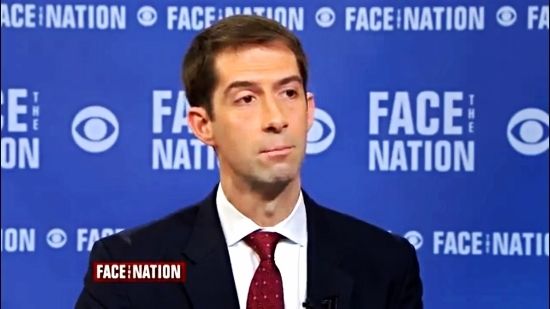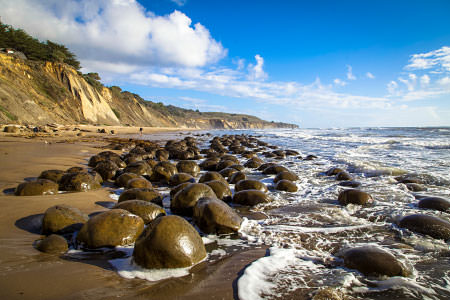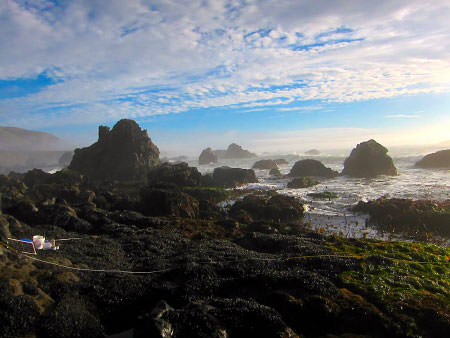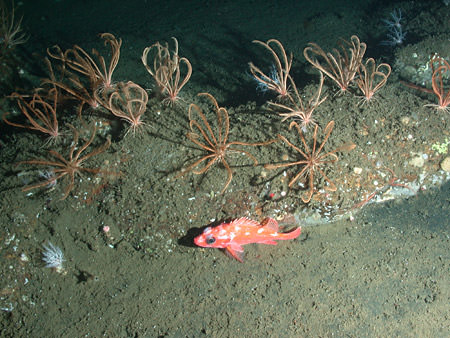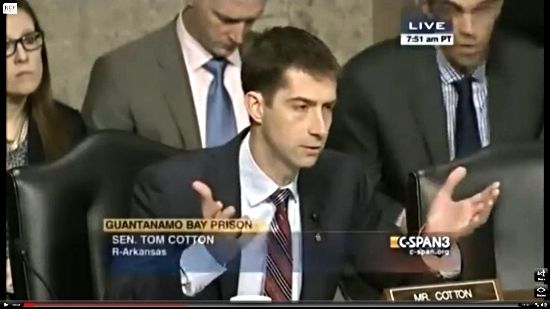SECRETARY KERRY: Well, good morning, everybody. Fred, thank you very, very much for a very generous introduction. I’m delighted to be here with everybody. Distinguished ambassadors who are here this morning, thank you for taking time to represent your countries and come here and share your concern about this critical issue.
And I’m delighted to be accompanied by our envoy on climate, who’s been toiling away in the fields for a long time now in helping to shape President Obama’s and the State Department’s policy on this, Todd Stern. Todd, thanks for your many efforts on it.
Fred, thank you for leadership here at the Atlantic Council. I think Fred has demonstrated that he seems to always have the ability to have his finger on the most critical issues of the day, not just today actually, but of tomorrow. And as a result, we can always count on the Atlantic Council to be ahead of the curve and to be challenging all of us to think. So we appreciate very much what you do. And thank you, all of you, who are on the board and/or a part of and committed to the efforts of the council.
I have to add you also have an impeccable eye for talent. I was not surprised to hear that you had the good sense to hire Ambassador Richard Morningstar. He’s one of the most experienced global energy experts and a good friend of mine and Massachusetts – a son of Massachusetts. And now that he’s the director of the new Global Energy Center, you couldn’t be in better hands. And secondly, my former legislative assistant on energy and climate and then went to the White House, Heather Zichal, is part of this great family of effort on climate. So I think we’re kind of a family here this morning, in fact.
It’s clear that from Venezuela to Iraq to Ukraine, there is no shortage of energy challenges in the world today. And we’ve had many conversations recently. I was in Brussels. We had an U.S.-EU energy summit, where we laid out an agenda for how we can liberate some of these countries from their one-country dependency in the case of Russia and others. It has huge strategic importance. But I have to tell you, at the top of the list of energy challenges is climate change. And that is why the Road to Paris series, the very first hosted by the center, is so very important, and I am really delighted to be here and be a part of it.
As Fred mentioned, climate change is an issue that is personal to me, and it has been since the 1980s, when we were organizing the very first climate hearings in the Senate. In fact, it really predates that, going back to Earth Day when I’d come back from Vietnam. It was the first political thing I began to organize in Massachusetts, when citizens started to make a solid statement in this country. And I might add that’s before we even had an Environmental Protection Agency or a Clean Water Act or Safe Drinking Water Act or a Marine Mammal Protection Act or a Coastal Zone Management Act. It all came out of that kind of citizen movement. And that’s what we have to be involved in now. And the reason for that is simple: For decades now, the science has been screaming at us, warning us, trying to compel us to act.
And I just want to underscore that for a moment. It may seem obvious to you, but it isn’t to some. Science is and has long been crystal clear when it comes to climate change. Al Gore, Tim Worth, and a group of us organized the first hearings in the Senate on this, 1988. We heard Jim Hansen stand in – sit in front of us and tell us it’s happening now, 1988. So we’re not talking about news reports or blog posts or even speeches that some cabinet secretary might give at a think tank. We’re talking about a fact-based, evidence-supported, peer-reviewed science. And yet, if you listen to some people in Washington or elsewhere, you’d think there’s a question about whether climate change really is a problem or whether we really need to respond to it.
So stop for a minute and just think about the basics. When an apple falls from a tree, it will drop toward the ground. We know that because of the basic laws of physics. Science tells us that gravity exists, and no one disputes that. Science also tells us that when the water temperature drops below 32 degrees Fahrenheit, it turns to ice. No one disputes that.
So when science tells us that our climate is changing and humans beings are largely causing that change, by what right do people stand up and just say, “Well, I dispute that” or “I deny that elementary truth?” And yet, there are those who do so. Literally a couple of days ago, I read about some state officials who are actually trying to ban the use of the term “climate change” in public documents because they’re not willing to face the facts.
Now folks, we literally do not have the time to waste debating whether we can say “climate change.” We have to talk about how we solve climate change. Because no matter how much people want to bury their heads in the sand, it will not alter the fact that 97 percent of peer-reviewed climate studies confirm that climate change is happening and that human activity is largely responsible. I have been involved in public policy debates now for 40-plus years, whatever, since the 1960s. It is rare, rare, rare – I can tell you after 28 years-plus in the Senate – to get a super majority of studies to agree on anything. But 97 percent, over 20-plus years – that’s a dramatic statement of fact that no one of good conscience has a right to ignore.
But what’s really troubling is that those same scientists are telling us what’s going to happen, not just the fact of it being there, but they’re telling us what’s coming at us. These scientists also agree that if we continue to march like robots down the path that we’re on, the world as we know it will be transformed dramatically for the worse. And we can expect that sea levels will continue rising to dangerous levels. We will see nations moved as a consequence in the Pacific and elsewhere – Bangladesh, countries that are low.
We will see large swaths of cities and even some countries under water. We can expect more intense and frequent extreme weather events like hurricanes and typhoons. We can expect disruptions to the global agricultural sector that will threaten job security for millions of farmers and undermine food security for millions of families. We can expect prolonged droughts and resource shortages, which have the potential to fan the flames of conflict in areas that are already troubled by longstanding political, economic, religious, ideological, sectarian disputes. Imagine when they’re complicated by the absence of water and food.
These are the consequences of climate change, and this is the magnitude of what we are up against. And measured against the array of global threats we face today – and there are many. Terrorism, extremism, epidemics, poverty, nuclear proliferation, all challenges that respect no borders – climate change belongs on that very same list. It is, indeed, one of the biggest threats facing our planet today. And even top military personnel have designated it as a security threat to not just the United States but the world. And no one who has truly considered the science, no one who has truly listened objectively to our national security experts, could reach a different conclusion.
So yes, this is personal to me. But you know what? The bottom line is it ought to be personal to everybody, every man, woman, child, businessperson, student, grandparent, wherever we live, whatever our calling, whatever our personal background might be. This issue affects everyone on the planet. And if any challenge requires global cooperation and urgent action, this is it.
Make no mistake, this is a critical year. And that is why this Road to Paris series is so important. The science tells us we still have a window of time to prevent the worst impacts of climate change, but that window is closing quickly. We’re already in a mode where we’re looking at mitigation, not just prevention. In December, the world will come together at the UN Climate Conference in Paris, and we will see whether or not we can muster the collective political will to reach an ambitious, comprehensive agreement.
Now even those of us who are most involved in the negotiations – and Todd and I have talked to this, and talked about it with the President – we all understand. We know that even the agreement we’re trying to reach in Paris will not completely and totally be able to eliminate the threat. It’s not going to. But it is an absolutely vital first step, and it would be a breakthrough demonstration that countries across the globe now recognize the problem and the need for each and every one of us to contribute to a solution. And it will set the market moving; it will change attitudes; it will change governments. And then progressively, no one can quite measure what the exponential productivity of all of that effort will produce. So we have nine short months to come together around the kind of agreement that will put us on the right path.
Now rest assured – not a threat, but a statement of fact – if we fail, future generations will not and should not forgive those who ignore this moment, no matter their reasoning. Future generations will judge our effort not just as a policy failure but as a collective moral failure of historic consequence. And they will want to know how world leaders could possibly have been so blind or so ignorant or so ideological or so dysfunctional and, frankly, so stubborn that we failed to act on knowledge that was confirmed by so many scientists, in so many studies, over such a long period of time, and documented by so much evidence.
The truth is we will have no excuse. You don’t need to be a scientist to see that the world is already changing and feeling the impacts of global climate change and significantly. Many of the things I mentioned a moment ago are already beginning to unfold before our eyes. Just look around you. Fourteen of the fifteen warmest years on record in all of history have occurred since 2000, in all of recorded history. Last year was the warmest of all. And I think if you stop and think about it, it seems that almost every next year becomes one of the hottest on record.
And with added heat comes an altered environment. It’s not particularly complicated. I don’t mean to sound haughty, but think about it for a minute. Life on Earth would not exist without a greenhouse effect. That is what has kept the average temperature up, until recently, at 57 degrees Fahrenheit, because there is this greenhouse effect. And it was called the greenhouse effect because it does exactly what a greenhouse does. When the sun pours in and bounces off at a different angle, it goes back up at a different angle. That can’t escape, and that warms things – a very simple proposition.
Now it’s difficult to tell whether one specific storm or one specific drought is solely caused by climate change, or a specific moment, but the growing number of extreme events scientists tell us is a clear signal to all of us. Recently Southeastern Brazil has been experiencing a crippling drought, the worst the region has seen in 80 years. The situation is so dire that families in Sao Paulo have been drilling through their basement floors in search of groundwater.
And the historic droughts in some parts of the world are matched only by historic floods in others. Malawi is currently in the midst of a disaster in which more than 150 people have died. Tens of thousands of people have been stranded by the rushing waters, cut off from food, clean water, healthcare, and thousands more have been forced from their homes.
This is happening now. It’s not a future event. And you can find countries, places – in fact, California, where they’ve had 100-year, 500-year droughts and massive fires and so forth as a consequence of the changes. Ask any scientist who studies the movement of species, and they’ll tell you how species are moving steadily north, fish moving. Everything is changing. It’s happening before our eyes, and that’s the first reason there is no excuse for ignoring this problem.
The second reason is that, unlike some of challenges that we face – I can readily attest to this – this one has a ready-made solution. The solution is not a mystery. It’s staring us in the face. It’s called energy policy. Energy policy. That’s the solution to climate change. And with the right choices, at the right speed, you can actually prevent the worst effects of climate change from crippling us forever. If we make the switch to a global, clean-energy economy a priority, if we think more creatively about how we power our cars, heat our homes, operate our businesses, then we still have time to prevent the worst consequences of climate change. It really is as simple as that. But getting there is proving not to be as simple.
So what, more specifically, do we need to do? I’m not going to come here and just describe the problem. What do we need to do?
To begin with, we need leaders with the political courage to make the tough, but necessary, policy choices that will help us all find the right path. And I am pleased to say and proud to serve with a President who has accepted that challenge, who has taken this head on. Today, thanks to President Obama’s Climate Action Plan, the United States is well on its way to meeting our international commitments to seriously cut greenhouse gas emissions by 2020. And that’s because we’re going straight to the largest sources of pollution. We’re targeting emissions from transportation and power sources, which account for about 60 percent of the dangerous greenhouse gases that we release. And we’re also tackling smaller opportunities in every sector of the economy in order to be able to address every greenhouse gas.
The President has put in place standards to double the fuel efficiency of cars and trucks on American roads. We’ve also proposed regulations that will curb carbon pollution from new and existing power plants.
But it’s not enough just to address the pollution generated by dirty sources of energy; we also have to invest in cleaner alternatives. Since President Obama took office, the United States has upped its wind energy production more than threefold and increased our solar energy generation more than tenfold. We’ve also become smarter about the way we use energy in our homes and businesses.
And this is by far the most ambitious set of climate actions that the United States of America has ever undertaken. And it’s a large part of why today we’re emitting less than we have in two decades. It’s also the reason that we were able to recently announce the goal of reducing emissions by 26 to 28 percent, from 2005 levels, and accomplish that by year 2025. And that will put us squarely on the road to a more sustainable and prosperous economy. Now, this upper end target would also enable us to be able to cut our emissions by 83 percent by mid-century, which is what scientists say we need to do in order to prevent warming from exceeding the threshold level of 2 degrees centigrade, Celsius.
But I can’t emphasize this enough, no single country, not even the United States, can solve this problem or foot this bill alone. And that isn’t just rhetoric. It’s physically impossible. Think of it this way: Even if every single American bikes to work or carpooled to school, or used only solar panels to power their homes; if we each planted a dozen trees, every American; if we somehow eliminated all of our domestic greenhouse gas emissions – guess what? That still wouldn’t be enough to offset the carbon pollution coming from the rest of the world. The same would be true if China went to zero emissions but others continued with business as usual. It’s not enough for one country or even a few countries to reduce emissions if their neighbors are unwilling to do their share. So when I say we need a global solution, I mean it. Anything less won’t work.
Now of course, industrialized countries, obviously, play a major role in bringing about a clean-energy future. And the days of the Industrial Revolution all the way through the last century – obviously the industrial countries benefitted by developing and growing, but they also created the basic template for this problem. But even if all the industrial countries stopped today, it doesn’t solve the problem. And it certainly is a signal that other countries shouldn’t go off and repeat the mistakes of the past. We have to remember that, today, almost two-thirds of global emissions come from developing nations. So it is imperative that developing nations be part of the solution also.
Now I want to make this very, very clear. In economic terms, this is not a choice between bad and worse. Some people like to demagogue this issue. They want to tell you, “Oh, we can’t afford to do this.” Nothing could be further from the truth. We can’t afford not to do it. And in fact, the economics will show you that it is better in the long run to do it and cheaper in the long run. So this is not a choice between bad and worse, not at all. Ultimately, this is a choice between growing or shrinking an economy. Pursuing cleaner, more efficient energy is actually the only way that nations around the world can build the kind of economies that are going to thrive for decades to come.
And here’s why. Coal and oil are only cheap ways to power a nation in the very near term. But if you look a little further down you road, you begin to see an entirely different story. When you think about the real numbers over time, the costs of those outdated energy sources actually pile up very quickly.
Start with the economic impacts related to agriculture and food security and how scientists estimate that the changing climate is going to cause yields of crops like rice and maize and wheat to fall by 2 percent every decade. Consider what that means for millions of farmers around the world and the inflationary impact that will have on food prices. Now factor in how that would also exacerbate global challenges like hunger and malnutrition that we already face. Add to that the other long-term health-related problems caused by dirty air – asthma is an example, which predominantly affects children and already costs Americans an estimated $50 billion annually. The greatest single cause of young American children being hospitalized in the course of a summer in the United States is environmentally-induced asthma, and that costs billions.
The reality is that carbon-based air pollution contributes to the deaths of at least 4.5 million people every year. No part of that is inexpensive. And any nation that argues that it simply can’t afford to invest in the alternative and renewable energy needs to take a second look at what they’re paying for, consider the sizable costs that are associated with rebuilding in the wake of devastating weather events. In 2012 alone, extreme weather cost the United States nearly $120 billion in damages. When Typhoon Haiyan hit the Philippines a little over a year ago, the cost of responding exceeded $10 billion. And that’s just the bill for the storm damage. Think of the added health care costs, the expenses that result from agricultural and environmental degradation. It is time, my friends, for people to do real cost accounting.
The bottom line is that we can’t only factor in the price of immediate energy needs. We have to include the long-term cost of carbon pollution. We have to factor in the cost of survival. And if we do, we will find that pursuing clean energy now is far more affordable than paying for the consequences of climate change later.
But there’s another piece of reality to take into account. And as you can see, these arguments begin to compound and grow, become irrefutable, frankly. Clean energy is not only the solution to climate change – guess what? It’s also one of the greatest economic opportunities of all time. Want to put people to work? This is the way you put people to work. The global energy market of the future is poised to be the largest market the world has ever known. We’re talking about a $6 trillion market today, with four to five billion users today. That will grow to nine billion users over the next few decades. By comparison, the great driver of wealth creation in this country in the 1990s, when super-billionaires and millionaires were created and every income level of America went up, that was a technology market. And it was a $1 trillion market with only a billion users – just to get a sense of the possibilities here.
Between now and 2035, investment in the energy sector is expected to reach nearly $17 trillion. That’s more than the entire GDP of China and you just have to imagine the opportunities for clean energy. Imagine the businesses that could be launched, the jobs that will be created in every corner of the globe. And by the way, the United States of America, in the year 2015, doesn’t even have a national grid. We have a great big gaping hole in the middle of our country. You can’t sell energy from the wind farm in Massachusetts or in Minnesota to another part of the country, because we can’t transmit it. Think of the jobs in creating that grid. Actually, you don’t have to imagine it. All you have to do is look at the results that we are already seeing in places like my home state of Massachusetts.
In 2007, we set a couple of goals. We pledged to build 2,000 megawatts of wind power capacity by 2020, and more than 250 megawatts of solar power by 2017. It was pretty ambitious. It was unprecedented. But we knew that the potential benefits to the state were enormous.
Fast forward to today, and Massachusetts has increased renewable energy by 400 percent in the last four years alone. We used a bulk purchasing program for residential solar to help keep prices low for residents and businesses across the state. And because of that, today there are residential solar installations in 350 of Massachusetts’s 351 cities and towns. Today, the commonwealth’s clean energy economy is a $10 billion industry that has grown by 10.5 percent over the past year and 47 percent since 2010. It employs nearly 100,000 people at 6,000 firms, and it’s the perfect example of how quickly this transformation could happen and how far its benefits reach.
If we put our minds to it, folks, if we make the right decisions and forge the right partnerships, we can bring these kinds of benefits to communities across the United States and around the globe. To get there, all nations have to be smarter about how we use energy, invest in energy, and encourage businesses to make smart energy choices as well.
Now, we’ll have to invest in new technology, and that will help us bring renewable energy sources like solar, wind, and hydro not only to the communities where those resources are abundant, but to every community in every country on every continent. We’ll have to stop government money from going towards nonrenewable energy sources, like coal and oil. It makes no sense to be subsidizing that. Which is why the United States has been helping to drive efforts in the G-20 and APEC to phase out wasteful fossil fuel subsidies.
And we’ve actually taken steps to prevent now global financial institutions from funding dirty power plants and putting public money into those things that we know are going to go in the wrong direction. We’ll have to strengthen legal and regulatory frameworks in countries overseas to help spur investment in places where it’s insufficient. It’s much easier for businesses to deploy capital when they have confidence in the local legal and regulatory policy. And to attract money, we need to control risk. The more you can minimize the risk, the greater confidence people, investors will have to bring their capital to the table.
We also have to continue to push for the world’s highest standards in the environmental chapters of the trade agreements that we’re pursuing, just like we are doing in the Transatlantic Trade and Investment Partnership and the Trans-Pacific Partnership. And just like labor standards in other agreements, these environmental agreements have to be really fully enforceable.
Finally, we have to find more ways for the private and the public sector to work together to make the most of the innovative technology that entrepreneurs are developing here in the United States and around the world. And this is the idea that is behind the White House announcement that they made last month, the Clean Energy Investment Initiative. Its starting goal is to attract $2 billion in private sector investment to be put toward clean energy climate change solutions.
Now, the good news is much of the technology that we need is already out there. And it’s becoming faster and faster, easier to access and cheaper to access. A report that the Department of Energy released this morning actually projects that in the United States, wind power is going to be directly competitive with conventional energy technologies within the next 10 years. None of this, therefore, none of what I have said, is beyond our capacity. It’s not a pipe dream; it’s a reality. It’s right there. And it’s up to us to grab it. The question is whether or not it is beyond our collective resolve.
Now, we have seen some encouraging progress, frankly, over the past few months. During President Obama’s trip to New Delhi early this year, and Fred referred to it in his introduction, India – well, both China and India – the President – affirmed its far-reaching solar energy target, and our two nations agreed on a number of climate and clean energy initiatives. We also committed to working closely together to achieve a successful global agreement in Paris. So India is joined in that challenge.
And that came on the heels of the historic announcement in China that the United States and China, the world’s two largest emitters of carbon pollution – two countries, by the way, long regarded as the leaders of opposing camps in the climate negotiations – have now found common ground on this issue. And I joined President Obama as he stood next to President Xi, and Todd was there when we unveiled our respective ambitious post-2020 mitigation commitments. That is an enormous achievement.
And it had an impact. It was felt in Lima at the COP meeting in Lima recently, and had an impact on the ability to move towards Paris with greater momentum. Around the same time, the EU announced its target as well, which means we now have strong commitments from the three largest emitters in the world.
Now we need more and more nations to follow suit and announce their ambitious mitigation targets as well. And because this has to be a truly all-hands-on-deck effort, I invite all of our partners – businesses and industry groups, mayors, governors throughout the country and around the world to announce their own targets, their commitments leading up to Paris, so we can set an example and create a grassroots movement towards success. This will help us come forward with plans that will help every country be able to reach their goals.
Now I am keenly aware that we can do a better job of engaging the private sector and our partners at the sub-national level of government in this effort. And I can tell you today that I plan to make certain in the next months that that happens. I know many of you have already made impressive announcements, those of you engaged in business or on the boards of an enterprise or eleemosynary or educational institutions. And you’ve helped to lay out how we can combat climate change, and I thank you for doing that. But now it’s time to build on those pledges. Let us know how you are doing. I say let us know through the State Department, through state.gov, and how we can help you make progress. And this is the kind of shared resolve that will help ensure that we are successful in Paris and beyond.
In closing, I ask you to consider one basic question. Suppose stretching your imaginations, as it will have to be, that somehow those 97 percent of studies that I just talked about – suppose that somehow they were wrong about climate change in the end. Hard to understand after 20 years of 97 percent, but imagine it. I just want you to imagine it. What are the consequences we would face for taking the actions that we’re talking about, and based on the notion that those might be correct? I’ll tell you what the consequences are. You’ll create an extraordinary number of jobs, you’ll kick our economies into gear all around the world, because we’ll be taking advantage of one of the biggest business opportunities the world has ever known.
We’ll have healthier people. Those billions of dollars of costs in the summer and at hospitals and for emphysema, lung disease, particulate cancer, will be reduced because we’ll be eliminating a lot of the toxic pollution coming from smoke stacks and tall pipes. Air will be cleaner. You can actually see your city. We’ll have a more secure world because it’ll be far easier for countries to attain the long-lasting energy independence and security they thrive – they need to thrive and not be blackmailed by another nation, cut off, their economy turned into turmoil because they can’t have the independence they need and the guarantees of energy supply.
We will live up in the course of all of that to our moral responsibility to leave the planet Earth in better condition than we were handed it, to live up to even scripture which calls on us to protect planet Earth. These – all of these things are the so-called consequences of global action to address climate change. What’s the other side of that question? What will happen if we do nothing and the climate skeptics are wrong and the delayers are wrong and the people who calculate cost without taking everything into account are wrong? The answer to that is pretty straightforward: utter catastrophe, life as we know it on Earth.
So I through my life have believed that you can take certain kinds of risks in the course of public affairs and life. My heroes are people who dared to take on great challenges without knowing for certain what the outcome would be. Lincoln took risks, Gandhi took risks, Churchill took risks, Dr. King took risks, Mandela took risks, but that doesn’t mean that every risk-taker is a role model. It’s one thing to risk a career or a life on behalf of a principle or to save or liberate a population. It’s quite another to wager the well-being of generations and life itself simply to continue satisfying the appetites of the present or to insist on a course of inaction long after all the available evidence has pointed to the folly of that path. Gambling with the future of Earth itself when we know full well what the outcome would be is beyond reckless. It is just plain immoral. And it is a risk that no one should take. We need to face reality. There is no planet B.
So I’m not suggesting it’s going to be easy in these next months or even these next few years. If it were, we would have solved this decades ago when the science first revealed the facts of what we were facing. But it is crunch time now. We’ve used up our hall passes, our excuses. We’ve used up too much valuable time. We know what we have to do. And I am confident that we can find a way to summon the resolve that we need to tackle this shared threat. And we can reach an agreement in Paris, we can carve out a path toward a clean energy future, we can meet this challenge. That is our charge for ourselves and for our children and grandchildren, and it is a charge we must keep. Thank you all. (Applause.)
MR. KEMPE: I wanted to thank Secretary Kerry for his significant, passionate, focused remarks, important remarks that I think will really set up the road to Paris, but really way beyond that. We understand that you have to rush out to a very important meeting at the White House. I do want to ask just one question to close this off, and if you can broaden this to the energy world at large. We’re seeing falling prices, we’ve got the U.S. energy boom. How are you looking at the impact of both of those things in context of this? What is the geopolitics of these falling prices and the rise of America as really the leading, if not a leading energy producer in the world?
SECRETARY KERRY: Well, the impact is very significant, obviously. It’s certainly affected Russia’s income and the current situation in Russia. It’s affected the situation in Iran. It’s affected the budgets of those producing states. It has potential on some sides to strategically be helpful and the potential on other sides to be strategically damaging. For instance, if Petrocaribe were to fall because of events in Venezuela or because of price and so forth, we could wind up with a serious humanitarian challenge on our – in our near neighborhood.
And so there are a lot of pluses and minuses of it, but you have to remember the primary reason for America’s good fortune in this turnaround right now is LNG. It’s the production of gas and fracking and what’s happened in terms of our independence, at least – and we’re also producing more oil, by the way, at the same time. And we’ve become one of the world’s largest, if not the largest energy producer. That’s positive as long as we’re on a road to deal with the problem I just laid out here today.
But remember, while LNG is 50 percent less carbon-intensive than oil, it’s nevertheless carbon, and it has its impact. So it’s a movement in the right direction, but in the end, we’re going to have to do all the things I just talked about, which is move to sustainable, renewable, alternative other kinds of energy that don’t have that problem. And the way the world is going right now because of the dependency – another negative impact of that is that it has greatly reduced the price of coal, and therefore in certain countries, people are just going on a price basis and racing to coal. And that means we have a number of coal-fired power plants coming online in various countries at a rate that is simply destructive. And they’re not coming on with the latest technology in all cases.
There is no such thing in the end as absolutely clean coal. And so we have a challenge with respect to what we’re going to do. There are technologies that significantly clean coal, and when put in place, that’s very helpful. And if you can do carbon sequestration and storage, which isn’t happening enough – there’s a way to use it – but it’s, in the marketplace, I think, going to be far more expensive in the end than these other technologies which are coming online to produce other things at a far better cost. As I mentioned to you, wind is about to be in the next 10 years competitive with other energy. So that’s going to be an enormous transformation.
But what really has to happen here is the setting of a goal through the Paris agreement so that people suddenly see that countries everywhere are moving in this direction, and then the marketplace begins to move. That’s when innovators and entrepreneurs and investors start to say this is the future and it takes hold, and that accelerates the process itself. And when that begins to happen, that’s when this $6 trillion market and the ultimately 9 billion users component of this really kicks in and takes over.
So it’s a mixed bag for the moment, but I think we certainly see the roadmap to move in the right direction. Thank you.
MR. KEMPE: So in closing, let me just say three or four years ago, the Atlantic Council gave you its Global Citizen Award in conjunction with the UN General Assembly, not knowing how much you would now be further earning it with your miles on the ground. We want to thank you not just for your work on climate change, which is absolutely historic and groundbreaking, but really your visionary, principled, and tireless leadership at a time we know is historically challenging. Thank you. (Applause.)


